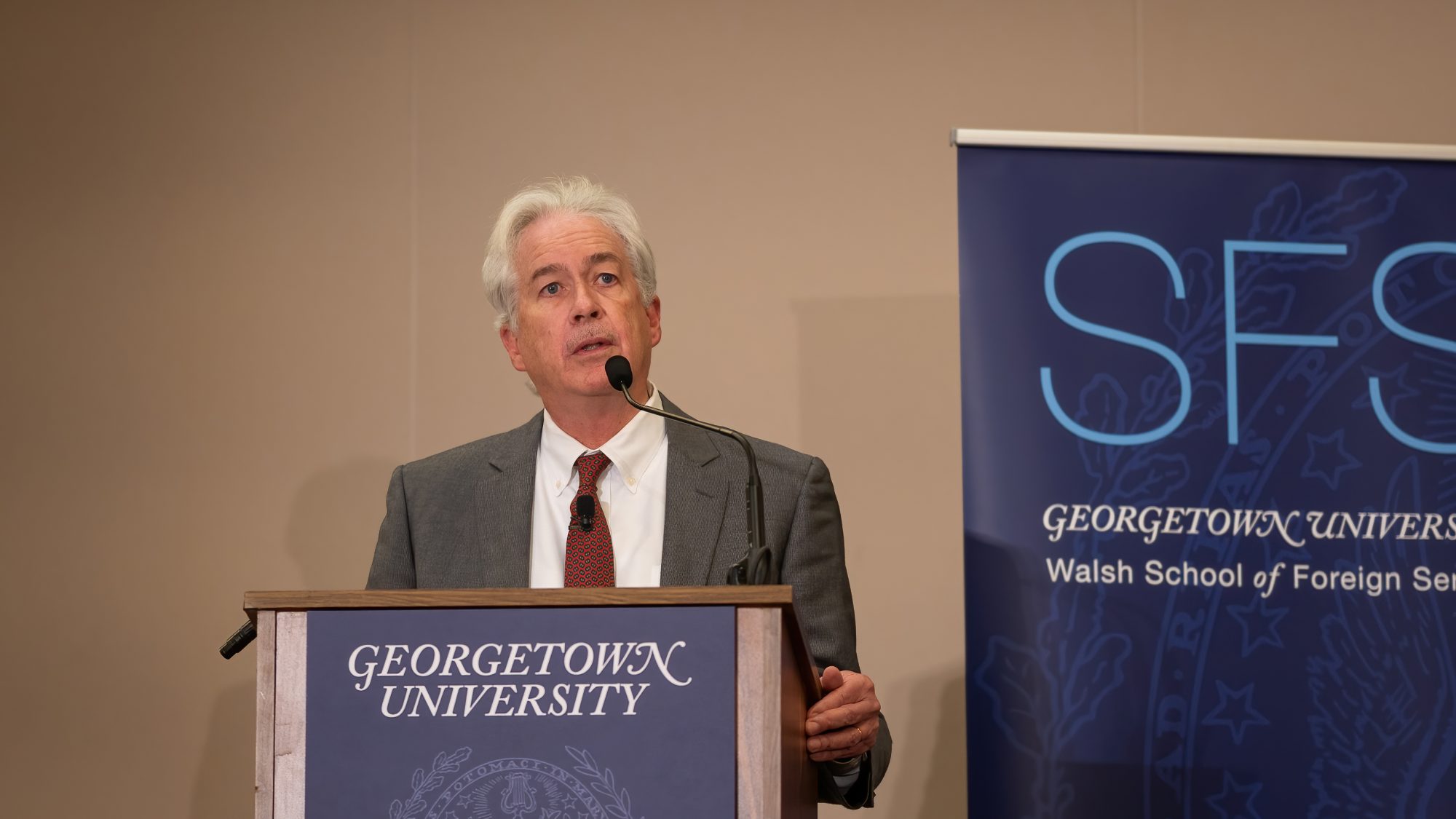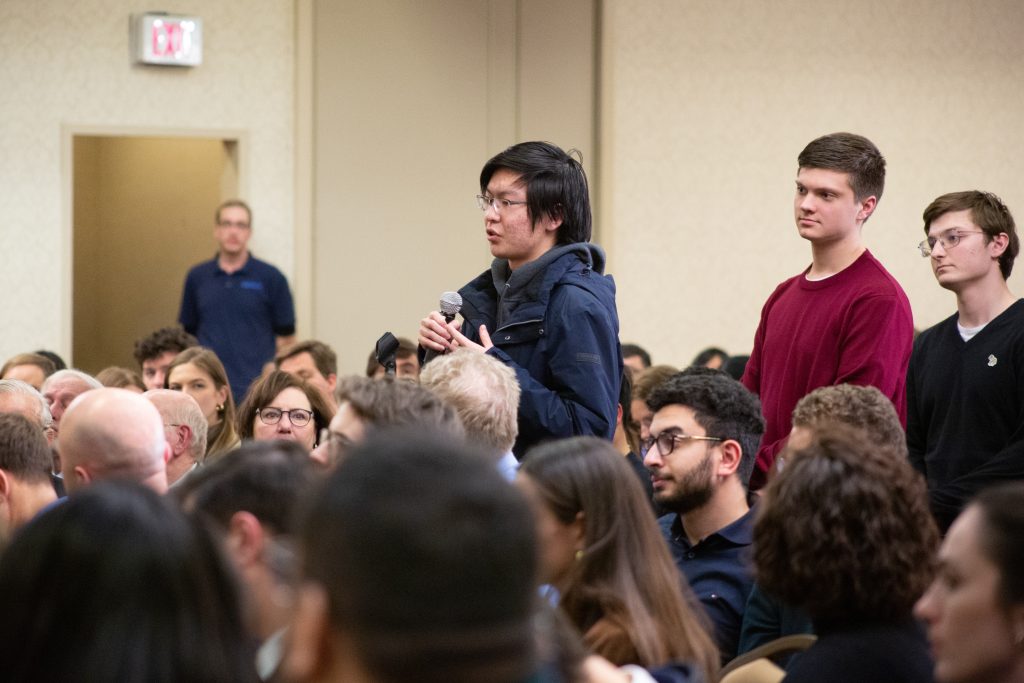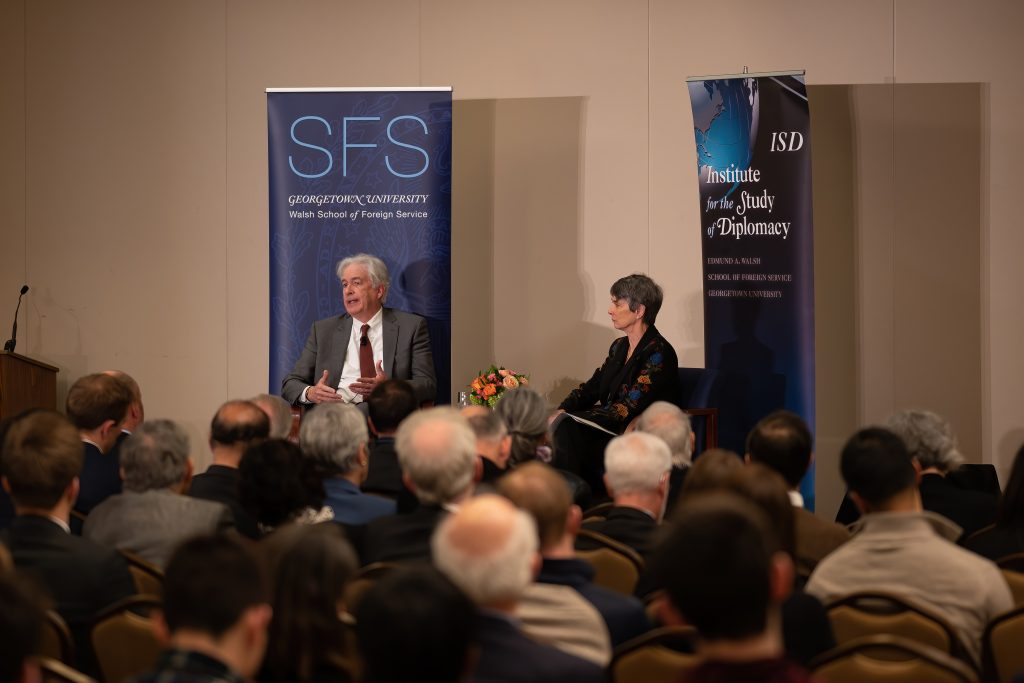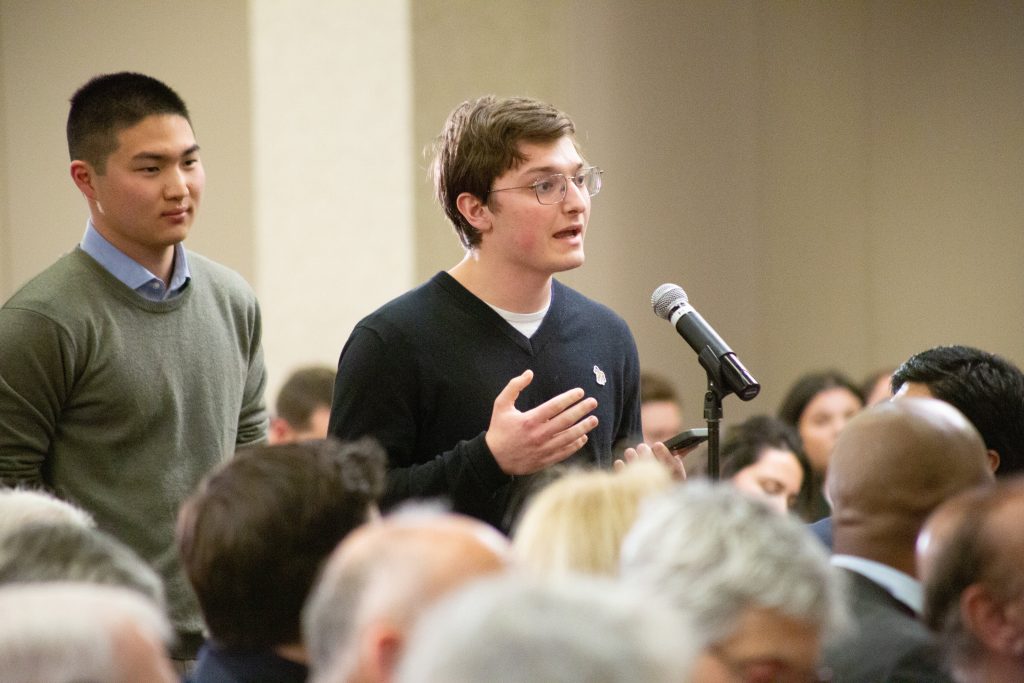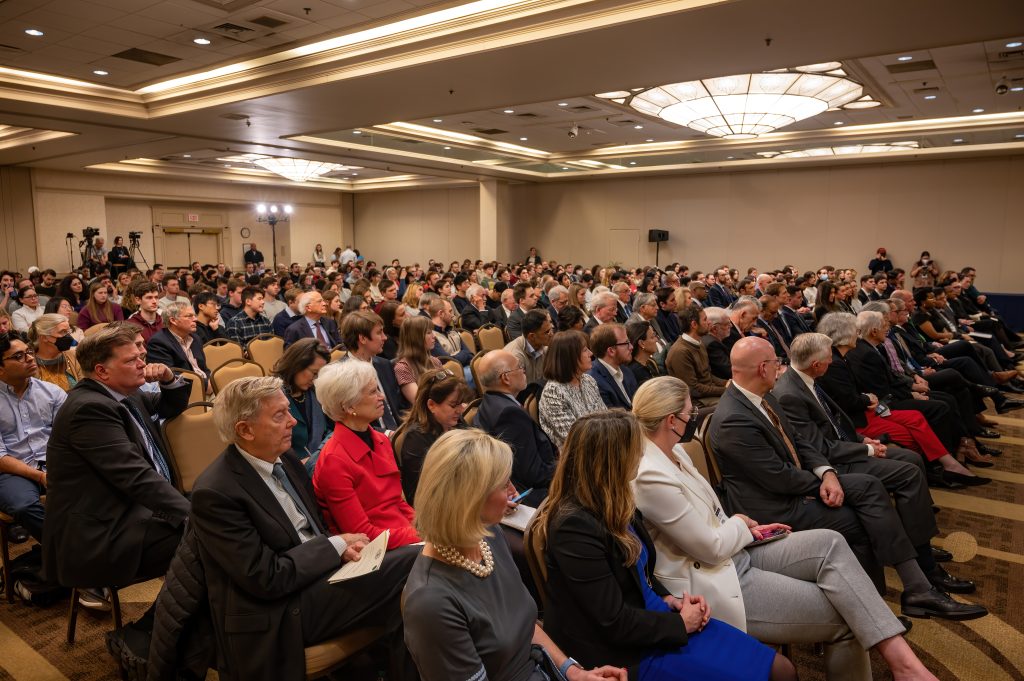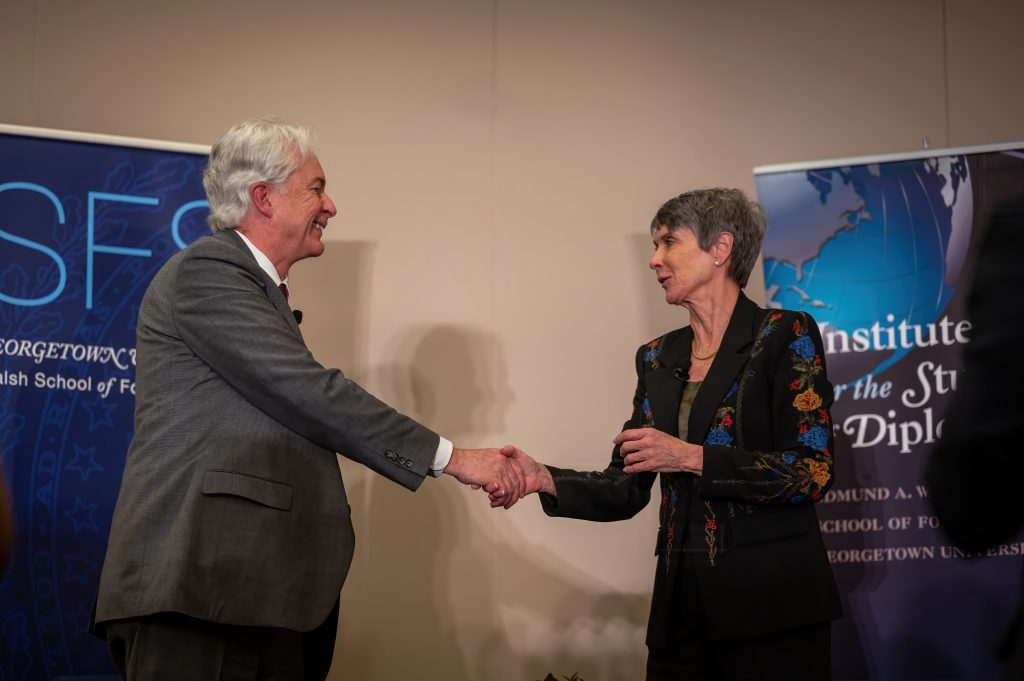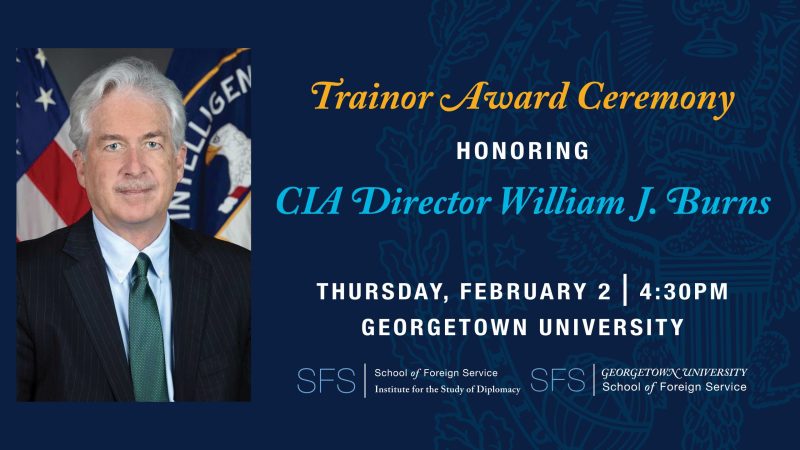On February 2, 2023, SFS and the Institute for the Study of Diplomacy (ISD) presented the 2022 Trainor Award to Ambassador WIlliam J. Burns, recognizing his groundbreaking work as a former U.S. diplomat and Deputy Secretary of State.
Named after the late J. Raymond “Jit” Trainor — a former registrar and one of the first students to enroll in SFS — each year the award is given to an outstanding practitioner for distinction in the conduct of diplomacy. Previous awardees have included Amb. Marie Yovanovitch, Sec. Madeleine Albright and United Nations High Commissioner Zeid Ra’ad Al Hussein, among others.
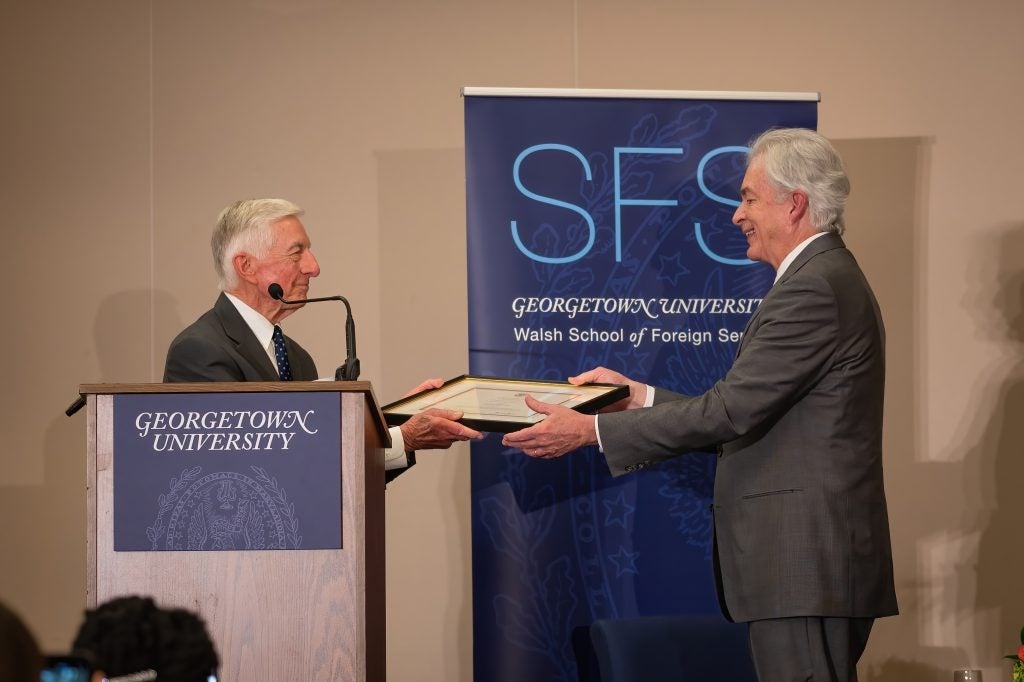
Life at the Forefront of Foreign Policy
With experience cross-cutting the fields of intelligence and diplomacy, Amb. Burns currently serves as the Director of the Central Intelligence Agency (CIA). Prior to assuming this position, he was the president of the Carnegie Endowment for International Peace, one of the oldest international affairs think tanks in the country.
Amb. Barabara K. Bodine, Director of the ISD and a former colleague of Burns’, emphasized that this year’s recipient was more than qualified for the honor. “To describe Ambassador Burns’ career…as exceptional risks remarkable understatement,” she stated in her introductory remarks. “The Ambassador [played] a major and direct, if sometimes quiet role…[during] 9/11 and in the early days of the wars in Afghanistan and Iraq.”
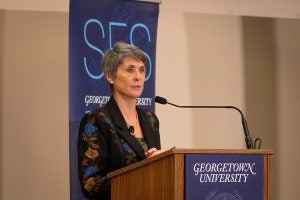
Having held various posts in government, Burns’ career in the U.S. Foreign Service spanned 33 years. His career took him to the forefront of some of the greatest foreign policy challenges in modern history — among them, leading successful back-channel negotiations related to the signing of the Iran nuclear deal and convincing Muammar Gaddafi to pursue Libyan disarmament.
Guiding Burns through these events was a steady commitment to public service and an openness to learning. “At every step along the way, I learned something new,” he said. “Sometimes, it was about classic diplomatic challenges…like supporting Secretary of State Baker as the Cold War ended, the Soviet Union disintegrated, [and] Germany was reunified…or watching Vladimir Putin expand his appetite for risk and deepen his brutish sense of destiny.”
Uncovering Putin’s Calculus
After being presented with the Trainor Award by Frank Hogan, Chairman of the Board of Trustees of the Trainor Endowment, Burns joined Bodine for a moderated conversation centered on “Addressing the Global Threat Landscape.” In line with this theme, the two touched on Putin’s calculus in Ukraine, counterterrorism in the Middle East and the evolving nature of competition with China.
Speaking with a nuanced understanding of Vladimir Putin’s character from his time as U.S. Ambassador to Russia, Burns argued that Putin’s policy decisions have been animated by two major goals: restoring Russia’s status as a revered power in the international system and establishing himself as the next great Russian leader.
Both of these objectives stem from the collapse of the Soviet Union in the 1990s — the perceived humiliation of which Amb. Burns described as having laid the groundwork for Putin’s aggressive approach to foreign policy.
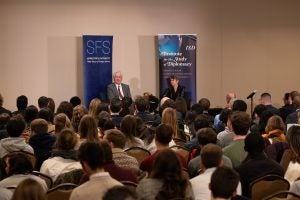
“I think [Putin] has seen, as I look back over the last 20 years, the progress that Ukraine has made toward democratic institutions…and its increasing ties with the West,” Burns said, in regards to the current conflict in Europe. “Putin had always said privately…that he doesn’t think Ukraine is a real country. [But] real countries fight back, and that’s just what the Ukrainians have done.”
Renewed Great Power Competition
Critically, Burns discussed how contemporary foreign policy will not be limited to the West; in particular, that the Middle East and North Africa would re-emerge as a theater bringing a new set of challenges for policymakers.
“Part of that is about Iran” he stated. “It’s about an Iranian regime that I think is increasingly unsettled by what’s going on inside Iran — the remarkable courage of demonstrators over the course of the last few months, especially young Iranian women, who I think…[are] fed up with a lack of dignity. And none of this is about us, it’s not about Americans, it’s about Iranians and their future.”
However, Burns warned that domestic instability within Iran has the potential to push the Iranian regime to take a more aggressive stance in their actions abroad, having a marked — though often overlooked — impact on conflicts like Ukraine.
